#actually shadow and kiryu may be switched
Explore tagged Tumblr posts
Text
current wishlist
taiju mhm mhm mhm
shadow ehehehehe
kiryuuuuu GAH either one tbh
unfortunately ****
#i miss them all dearly#except for number 4#actually shadow and kiryu may be switched#and ignore the fact that it's technically 5 on that list#akari is so so cute that's why she's technically on this list but not really#like honestly saw her and got heart eyes and had to hold myself back from shoving mitsuki away#☆— yapping
2 notes
·
View notes
Text
My Top 10 Games of 2019
It was pretty hard to narrow down the list this year. 2019 was a lot stronger for video games than 2018 and I feel a LOT more confidant about my picks and GOTY choice. In addition, there were also a lot of indie games not mentioned here that I think I will highlight in another post a bit later. For now, here’s the Top 10.
10. Sayonara Wild Hearts (Simogo)
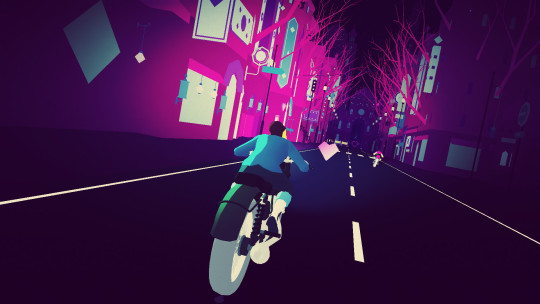
Sayonara Wild Hearts is something special. Although clocking in rather short at just under an hour long, I would best describe the game as an Album Video Game. Each of the game’s 23 or so levels has its own song. The actual gameplay consists of mostly on-rails segments where you have basic movement and avoid obstacles and collect pickups to boost your score, but every level has a unique take on that concept with major climax levels being full tracks with vocals. It’s incredibly stylistic and tells a heartwarming story about dealing with heartbreak. I highly recommend it to anyone who enjoys musical games.
9. Fire Emblem: Three Houses (Intelligent Systems)
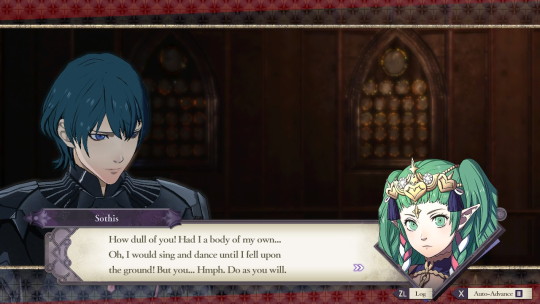
Fire Emblem: Three Houses is the first game in the series that managed to grab me. It’s a very competent tactical RPG with one of my favourite casts of characters this year (especially the Black Eagles house). I was consistently impressed the most with just the sheer amount of content and detail that went into it. An unnecessarily large amount of the dialogue is voiced, the second half of each of the three selectable house’s routes are totally unique, and each route takes around 60 hours to complete. I really never thought a Fire Emblem game would be my new most played game on the Switch by a mile but here we are.
8. AI: The Somnium Files (Spike Chunsoft)
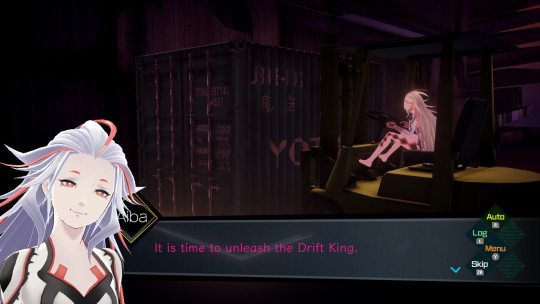
Kotaro Uchikoshi’s (creator of the Zero Escape trilogy) latest work might be his finest. AI: The Somnium Files is the game on the list this year with the most heart put into it. Consistently funny and over-the-top, a wonderful cast, and a really well executed sci-fi murder mystery. It makes me hope that Uchikoshi continues to make the kinds of games he wants to make, because you can definitely tell he had the most fun making this one.
7. Resident Evil 2 (Capcom)
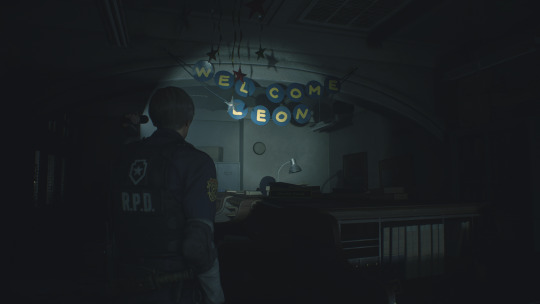
Resident Evil 2 is the new gold standard for game remakes. I could go on and on praising it for how good it feels to play, the sound design, and the painstaking detail of recreating the original game from the ground up to be a third-person shooter. Quality of Life changes like the map marking items and telling you when a room is cleared and telling you when it’s okay to throw away key items are such fantastic additions. It gives me really high hopes for the RE3 Remake next year. Capcom’s hotstreak continues.
6. Sekiro: Shadows Die Twice (From Software)
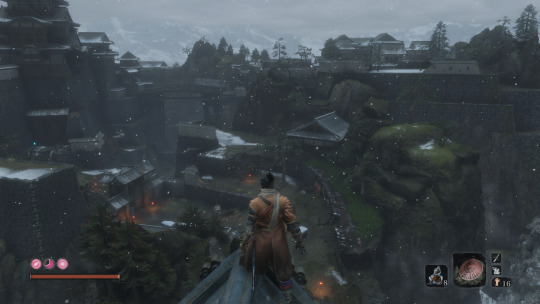
Sekiro rightfully earns its spot as my second favourite FromSoft game. The Souls formula is still there, but the gameplay is fairly different now. Taking Bloodborne’s aggressiveness encouragement another step forward, Sekiro rewards not giving the enemies a chance to breathe more than ever. Boss battles are a tug-of-war of trying to break each other’s posture and perfect blocking to mitigate it. The dodge button pushes you forward by default and you often hope to have your attack blocked more than a it be a direct hit. Some of my favourite FromSoft bosses reside in this game with the final boss perhaps being my favourite overall. Level design is also at its best with the game finally giving you a greater range of movement and verticality with jumping and grappling. There’s even decent stealth mechanics. Sekiro was a really pleasant surprise and I hope they continue The Wolf’s story.
5. Judgement (Ryu Ga Gotoku Studio)
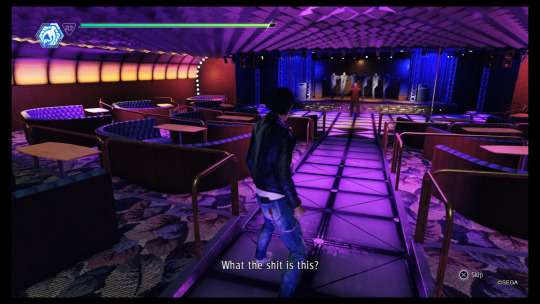
Judgement is a Yakuza game in all but name, and RGG Studio’s first one set in Kamurocho without Kiryu as the main character. After giving up being an attorney, Takayuki Yagami becomes a freelance detective and investigates a series of murders in the city with the help of his former law office and ex-Tojo clan friend Masaharu Kaito. Substories are framed as side cases that Yagami can take on to earn some extra money, and new mini-games like drone racing and the Paradise VR board game are incredible additions. Anyone who is a fan of the Yakuza series should really check this out, and newcomers can jump right in without prior knowledge.
4. Disco Elysium (ZA/UM)
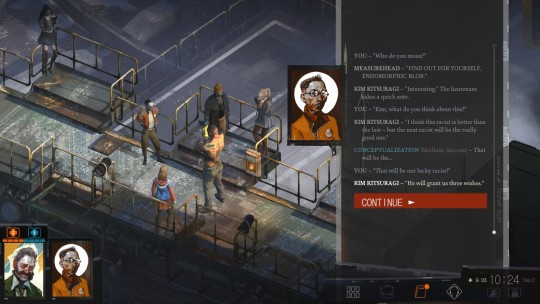
Disco Elysium has some of the best writing I have ever seen in a video game. As an amnesiac detective, you explore the rundown post-wartime district of Martinnaise trying to find who was behind the lynching of a mercenary before the situation gets out of control. What sets Disco Elysium apart from other RPGs in terms of gameplay is its character builds. As there is no combat, the 24 skills that you can put points into when you level up are all social skills. The higher you have various skills leveled, the more you will hear advice from them during conversation trees. A high Authority level will constantly remind you to tell people you are The Law, where a high level in Inland Empire will let you talk to inanimate objects to gain new perspectives. I also feel I have to give a nod to your partner throughout the game, Kim Kitsuragi. I’d rather not give anything away but they could not have written a better character to support you throughout your journey. I’ll likely be thinking about this game for a very long time.
3. Control (Remedy Entertainment)
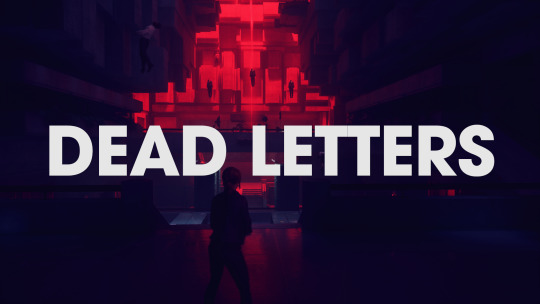
I think Control flew under a lot of people’s radars until the publicity from the overwhelming number of Game Awards nominations. Control is a game for people who like SCP, psychokinesis powers, cool architecture, and a bit of Alan Wake. It wears its inspirations very blatantly on its sleeve and wraps a very cool story and even better side quests around them. It’s very stylish and has phenomenal lighting. Perhaps this is my Remedy bias but I really really adored this game and featured the coolest moment of the year for me. Please check it out if you get the opportunity.
2. Kingdom Hearts III (Square Enix)
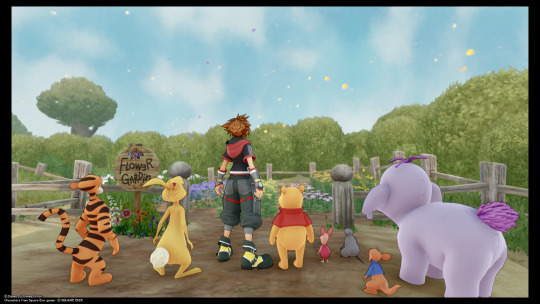
Kingdom Hearts III has been a long time coming and what I think it nails best are the size and scale of the worlds. Olympus is the best its ever been with how much of the area outside the Colosseum you get to explore. The Caribbean is more expansive with boat combat that’s better than it has any right to be. Monstropolis has a great original story with some incredible tie-ins to the Kingdom Hearts plot. There’s a ton of incredible fanservice moments too for everyone waiting to see their favourite characters again. I still think a lot of it is really hype albeit cheesy, and it finally puts to rest an arc that has been going since the very first game. Kingdom Hearts isn’t over, but KHIII wraps a lot of things up in as satisfying of a way as they could for a story so expansive and often times convoluted. It’s very rare when a game that has been anticipated for so long not only doesn’t fumble it, but delivers on what I had hoped for, so I’m really glad it got to finally release this year.
1. Devil May Cry 5 (Capcom)
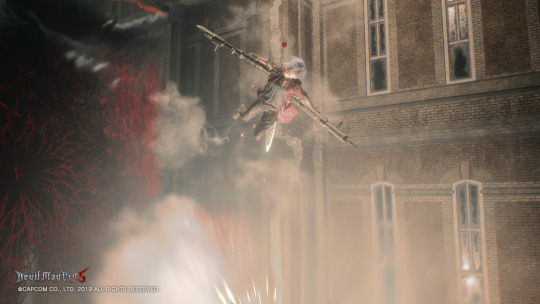
Speaking of games that I’ve been waiting a very long time for, DMC IS BACK! Every moment of DMC5 is a treat. Dante and Nero are at their most fun to play in this game, and V is a very cool addition both story-wise and gameplay-wise.This is the game from this year that I’ve kept going back to the most whether it’s for getting good at harder difficulties, or playing through bloody palace until floor 70 and give up ,or practicing with different weapons. It makes me happy to know that Platinum haven’t just been relegated to being the character action studio and that Hideaki Itsuno’s still got it. There’s no question that this is my Game of the Year and anyone who loves action games but hasn’t ever jumped into this series really needs to address that because DMC5 alone is worth it.
That’s all for my GOTY 2019 Top 10. If you’ve read this far, thanks for doing so. I really enjoy writing these and there’s a lot to look forward to in video games next March year, so please join me again next time when we can do this all over again!
#goty 2019#sayonara wild hearts#fe3h#ai the somnium files#resident evil 2#sekiro#judgement#disco elysium#control#kh3#dmc5
51 notes
·
View notes
Text
Can the Eyes of Judgment Stand up to the Shadow of the Dragon of Dojima?
It can be a difficult thing to come out in the shadow of a larger, more well known sibling. The expectations, implications, and existing familiarity make it hard for the younger sibling to really shine on their own, as people fail to see it as an individual and instead view it as a copy of the thing they’re already familiar with. In this case, Judgment, the newest game from Ryu Ga Gotoku Studio, the team responsible for the Yakuza series, has a lot of expectations stacked up against it from the outset. Like Yakuza, it takes place in Kamurocho. Like Yakuza, it uses the Dragon Engine. And like Yakuza, it features a mixture of free roaming action, quest solving, diversions, and a deep, pulpy noir story featuring seedy criminal activities, gang members, murders, and twists and turns.
After 6 mainline games (and quite a few spin-offs and prequels), the Yakuza series has become a well established around the world, with Kazuma Kiryu becoming a recognizable icon in his own right. Needless to say, that leaves Judgment in an odd position: is Yakuza popular because of the gameplay, or is Yakuza popular because of the character of Kazuma Kiryu and other memorable characters like Majima? And is it even fair to compare the two of them, aside from their shared parentage of Ryu Ga Gotoku Studio and the Dragon Engine? Well, yes and no, so let’s get down to investigating this game on its own before we talk about its comparison to its big brother.
In Judgment, Takayuki Yagami is a former defense lawyer who, after a shocking turn of events, leaves the world of the courtroom to become a private detective. Three years after his change in careers, players assume the role of Yagami, as a series of serial killings targeting yakuza members drags Yagami’s sense of curiosity and justice into the mix. Judgment is set against the criminal justice backdrop of Japan’s modern criminal system, which carries a 99.9% conviction rate; fans of the Phoenix Wright series may be somewhat familiar with this number, as it too carries a lot of significance in the original series’ backdrop of courtroom drama. One of the most popular criminal dramas in Japan is similarly titled 99.9%, and the idea of defense lawyers defying the odds makes for good television by using the real and sometimes confusing statistic of Japan’s conviction rate as a crux. The twist in most fictional portrayals is that this system is unfair, harsh, or even corrupt, where prosecutors will go to any lengths to get the conviction they require.
No matter what, though, this not-quite-dystopian legal system serves as a great backdrop for noir crime drama, and sure enough Judgment takes advantage of that for the type of world it builds around Yagami. As Yagami finds himself going deeper and deeper into the mystery of “The Mole,” he’ll be required to investigate areas, pick locks, tail suspects, fly drones, and fight off unsavory criminals in his quest to uncover who the real murderer is and bring the case to a close, despite the potential danger it involves. Judgment’s strongest overall quality is its story, as the mystery narrative pulls you in and Yagami is an interesting protagonist, surrounded by equally interesting co-stars.
Gameplay in Judgment will likely be familiar to anyone who has played Yakuza, but in general you explore the city of Kamurocho in third person, going from location to location on foot as you search for clues, meet up with people, and as the game progresses, seek down side cases (this game’s version of the sub stories). Yagami’s base is his office, a place that allows you to decorate, recover health, play records you collect, take on jobs, and even play pinball. Of course, there are plenty of other diversions to partake in, such as visiting Club Sega locations to play emulated versions of games like Fighting Vipers, those infamous UFO Catchers, and even a unique twist on House of the Dead called Kamuro of the Dead! Judgment adds drone races to the mix, taking advantage of the fact that Yagami has a drone he uses for investigations, and a VR arcade with a slew of unique games that go beyond simple recreations of arcade games.
You’ll be able to pursue friendships with various NPCs in the game, ranging from people you meet during the story to clerks at your favorite stores, giving Judgment that slight RPG feeling that the Yakuza games have always had. Instead of focusing on your character (which you can upgrade with Skill Points), your major goal in these side events is to raise your city reputation, allowing you to take on more and more side cases as the game progresses. Perhaps even better than Yakuza, these quests make some actual sense for Yagami to engage in; as a private detective, he takes on almost any job, which gives a nice sense of realism to the proceedings.
Of course no matter where Yagami goes, conflict is likely to follow, so it may come as no surprise that the game features quite a bit of combat. Unlike Kiryu or even Majima, Yagami is a relatively slight man, and his combat tends to focus on the fact that he needs speed and agility over brute strength. He has two combat modes that he can switch between, one that serves to help against large groups of enemies, and another that is better suited for one-on-one fights. He also gets a unique wall run set of moves that allow him to use sprinting momentum to launch off walls and attack enemies with various abilities. As he fights, he builds off his EX gauge, which allows you to use various finisher style moves on enemies, and as you level up, even gives you things like ways to attack while downed, or react to various enemy attacks by spending EX meter.
Of all the Yakuza games, I felt that this system reminded me the most of Kiwami 1 and Kiwami 2, but I did find that I have some small issues with Judgment’s combat. Locking on to an enemy by holding the R1 button is a somewhat nebulous act, and can even feel like you aren’t even doing it; but if you don’t, you can’t use dodge moves at all, meaning that the essential requirement of using 2 button presses to dodge becomes awkward. Blocking is done with the L1 button, meaning that you have to be aware that in combat, in order to react to the enemy, you’ll need to be ready to defend with L1, or R1 + X to dodge.
There are some of the weird Dragon Engine flaws that popped up in Kiwami 2 as well, with Yagami occasionally getting caught on scenery, which in one instance caused me to take Mortal Wounds from a boss as I couldn’t escape being stuck on a random decorative item in the area. These were minor in my playthrough, but I had hoped that the developers would maybe have ironed out those janky combat issues by the time Judgment released. One of the interesting changes is that Yagami does not store any weapons (I’m quite sad about this fact), meaning that unless you pick up random items (hello, bicycles!), you’re stuck with your bare fists for all combat situations. I also noticed that the usual collection of random items are available to use in battles, but in some instances of closed locations, like in an office, all of them were quickly destroyed by the ragdoll system, turning arenas like this into big, empty rooms.
Perhaps the biggest thing that sets Judgment apart from Yakuza is the detective aspects. The story of the game is quite interesting, and the way the player is asked to investigate tasks does make it feel like a procedural drama more than a crime drama, which helps in establishing a reason to view this game as its own entity. However, these types of sequences can be somewhat slow. While I took some time to explore the city and engage in some activities as they opened, the first chapter of the game took nearly 6 hours to complete, and proper side cases don’t even become available until the second chapter.
The Yakuza games do have a history of getting progressively bigger, and Judgment has some of that as well. You can likely expect to rack up around 70 hours in this game if you try to do everything like I did, and probably hit 50 hours if you solely focus on the story and do minimal side cases. Speed is not your friend in Judgment, and at times I found the game to be excessively talky, surprised by how much of the game was actually filled with characters talking to one another. In reflection, I would have to say that at least 50%, if not more, of the 6 hours I played of Chapter 1 was all talking.
Judgment is by far a more narrative game than its siblings, and while many of them had long and developed plotlines, Judgment puts heavy focus on narrative over everything else, which is not as negative as it sounds. Instead, you are given a very good sense of who these characters are, what’s happening, and why you should care about them. I found Yagami to be a particularly refreshing protagonist when compared to Kiryu and Majima; Yagami is a man who tried to play it straight and do his best as a lawyer, only to have that dream destroyed, with the past constantly haunting him. When compared to Kiryu, Yagami feels far more complex, a cynical and wry man whose dreams and ideas of the world have been shattered, but who still has a strong sense of justice burning under that cynicism. It would be fair to say that he’s almost far less charismatic than Kiryu as well, and comes off as almost unlikeable in certain instances; this isn’t a man fighting by any supposed code of honor, but instead a man trying to find purpose after the events he continues to blame himself for.
Yagami’s character depth is perhaps the strongest element of Judgment, and the reason that I enjoyed it despite some of my initial misgivings about how plot heavy it really is. While some of the investigation missions get tiring (the tailing missions especially), I constantly wanted to find out what was going to happen next. Judgment succeeds on the one part it really needed to land: the noir crime mystery story it tells. Yagami’s search for the truth, if not redemption, is fleshed out over the chapters of this game perfectly. If you’re a fan of mysteries or crime procedurals, there is a lot to love in Judgment, and the game even features difficulty options that allow you to focus solely on the narrative, a feature I really appreciated in retrospect after playing the game. While I enjoy the challenge of the Yakuza games, I think the fact that people who just want to experience Judgment’s story will get that option, as the easier difficulty options also affect some of the minigames like picking locks.
Comparing this game to Yakuza is pretty obvious, but a lot of the time I spent with Judgment made me think of the time I’ve spent with the Phoenix Wright games or L.A. Noire as well, and I appreciate that the developers tried to accommodate as many people as possible with these options. Yagami himself does a lot of the heavy lifting here too, as he’s a deeply flawed character who punishes himself far more than he needs to, leading him to make relatively obvious mistakes in judgment; perhaps one of the best aspects of a good noir crime story is a flawed protagonist seeking something, and Yagami really fulfills that role completely, perhaps even better than Cole, the protagonist of L.A. Noire. The game itself is fairly lax when it comes to choices, too, as it will generally steer you into the right answer, and there were never really any options that would take you down the wrong path or affect the story outcome. You’re more along for the ride here than you are making the decisions for where the story goes, which for the sake of how these games generally play, I found totally fine.
Those who know me are aware that I’m into Yakuza BIG TIME. After my partner talked me into playing Yakuza 0 when it was released on the PS4, I completely fell in love with the series. I’m currently on a long quest to play and stream all of the Yakuza games (I’m on Yakuza 3 at the moment), and it’s been a hell of a journey. The story, the drama, the characters, and my goodness, the ACTION! It was all wrapped in a perfect package that was a true joy to unwrap. I have to admit that when I first started playing Judgment, I was still thinking that I was going to play yet another Yakuza game, and when it wasn’t, it caught me off-guard. And that’s okay, because Judgment is its own thing in its own style; the game, despite also being set in Kamurocho, has plenty of unique appeal to it along with its charming cast of characters, like Kaito. I found myself getting more and more absorbed into the story and characters that the game had to offer.
When it comes to reviewing Judgment, I think there are two main questions to answer. The first is: “Does it stand up against the shadow of Kazuma Kiryu and the Yakuza games?”, which I believe yes, it does. You’ll find enough to enjoy here if you love those games, despite the narrative differences, but players who have never tried Yakuza at all should find this a great way to perhaps give the genre a chance without having to worry about all the baggage. The second question is: “Does this game succeed on its own as a crime noir mystery game?”, to which my answer is… mostly. The game is generally solid in this regard, with a great story and unique characters, but at times the game just takes far too long to get to the meat of the story. The pacing either needed to be faster, or the story more directly told, instead of wandering around Kamurocho back and forth between ever changing destinations.
That said, I think Judgment is a fantastic game that fans of Yakuza, Phoenix Wright, or crime dramas will enjoy. It may not have the history of its older sibling, and Yagami is certainly no Kiryu, but he is his own person, with his own cast of characters and stories to tell. And personally I’d love to see a second game in the series take us on even more adventures with Yagami solving mysteries, flying drones, and taking pictures of random stray cats, and I think you will too after playing through Judgment!
REVIEW ROUNDUP
+ Builds on the Yakuza franchise to establish its own flavor of story and characters.
+ Yagami is a unique and interesting protagonist that really carries the game on his back.
+ Variable difficulty lets players of any level enjoy the fantastic noir story here.
+/- Game can be slow and occasionally devolves into running back and forth on the map.
+/- While there is plenty of fun stuff to do, some of it just isn’t very interesting to do after a while.
- There are some frankly tired depictions of sexual harassment that women deal with here that seem to serve little purpose in the game other than being used for comic relief or to establish that bad people are bad.
Is this your first trip to Kamurocho, or are you a die-hard Yakuza fan? What’s your favorite part of Judgment? Let us know what you think of the game in the comments!
----
Nicole is a features writer and editor for Crunchyroll. Known for punching dudes in Yakuza games on her Twitch channel while professing her love for Majima. She also has a blog, Figuratively Speaking. Follow her on Twitter: @ellyberries
Do you love writing? Do you love anime? If you have an idea for a features story, pitch it to Crunchyroll Features!
1 note
·
View note